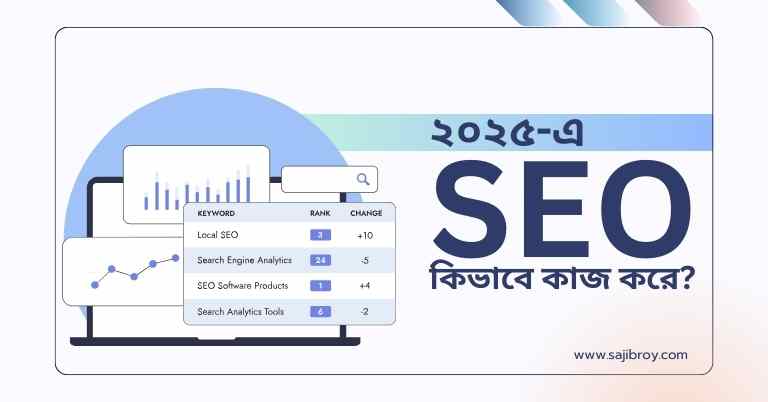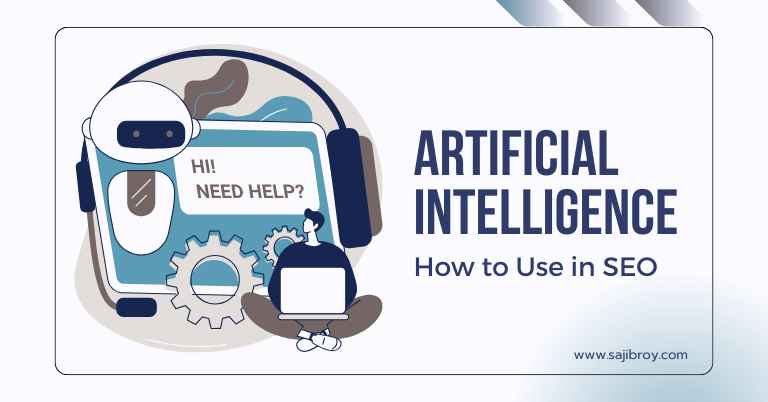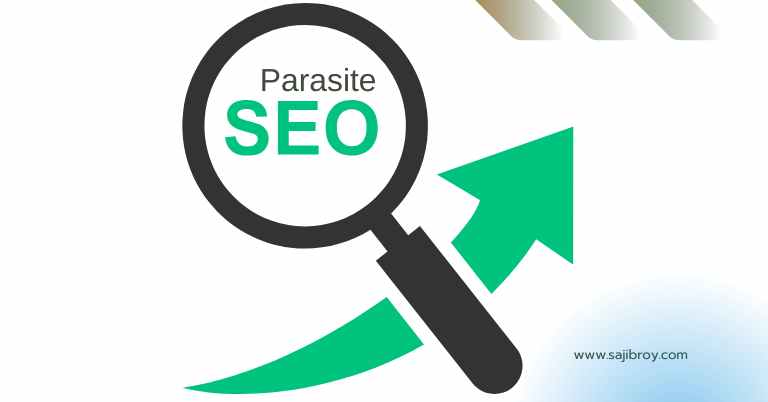Website indexing for search engines works by allowing search engine crawlers to scan and store web pages in their database, making them searchable for users looking for relevant information, products, or services. This process involves the search engine spider visiting web pages, following links, and analyzing content, such as text, images, and metadata, to determine its relevance and usefulness to search queries.
By indexing websites, search engines can efficiently organize and retrieve information to deliver accurate and timely search results to users. As a result, website owners and SEO specialists employ various techniques, including optimizing content and using XML sitemaps, to improve their website’s indexing and visibility in search engine results pages (SERPs).
Let's See the Topic Overview
Understanding The Role Of Website Indexing
Website indexing plays a crucial role in ensuring that search engines can effectively crawl and understand the content on your website. When search engines index your website, they create a searchable database of all the pages and information it contains. This enables them to deliver relevant search results to users when they search for specific keywords or topics.
Definition And Purpose Of Website Indexing
Website indexing refers to the process of search engines systematically analyzing and cataloging the content on your website. It involves the search engine’s software, called web crawlers or spiders, visiting each page on your site, collecting information, and adding it to their index.
The purpose of website indexing is twofold. First, it allows search engines to understand what your website is all about. By indexing the content, search engines gain insights into the keywords, topics, and themes covered on each page. This understanding empowers search engines to deliver relevant results to users who query specific keywords related to your website’s content. Second, by indexing your website, search engines can keep track of any changes or updates you make, ensuring that all the latest information is available to users.
How Search Engines Use Website Indexing For Search Results
Search engines use website indexing to provide accurate and relevant search results to users. When a user enters a search query, the search engine’s algorithms analyze their query and match it against the indexed content. By referring to their index, search engines can quickly determine which pages are most likely to provide the information the user is looking for, ensuring that the search results are as precise as possible.
Search engines consider a variety of factors when utilizing website indexing for search results, including the relevancy of the indexed content, the quality of the website, and the user’s search intent. By properly optimizing your website for indexing, you increase the likelihood of appearing higher in search results, driving organic traffic to your website.
The Impact Of Website Indexing On Organic Traffic
Website indexing has a direct impact on organic traffic to your website. When search engines have successfully indexed your pages, they can include them in their search results, making your website visible to a wider audience. The more pages that are indexed, the greater the chance that your website will appear in relevant searches.
It’s important to note that if certain pages or content on your website are not indexed, they will not show up in search results. This can result in missed opportunities to attract organic traffic and potential customers. Therefore, ensuring that your website is properly indexed is fundamental for driving organic traffic and increasing your online visibility.
The Website Crawling Process
Introduction To Website Crawling
The website crawling process is an essential aspect of the website indexing process for search engines. In simple terms, website crawling refers to the automated process by which search engine bots, also known as crawlers or spiders, systematically browse and analyze web pages to gather information.
How Search Engine Bots Discover And Crawl Web Pages
Search engine bots employ various methods to discover and crawl web pages. The most common way is through links. These bots start by visiting a few known web pages and then follow the links on those pages to navigate through the vast network of websites. This interconnected structure allows the bots to crawl from one page to another, methodically exploring the depths of the internet.
Additionally, search engine bots also rely on sitemaps, which are XML files that provide an outline of a website’s structure and list all the pages within it. By accessing the sitemap, search engine bots can efficiently identify and crawl all the pages of a website.
Factors That Affect Website Crawlability
Several factors can impact a website’s crawlability. One crucial aspect is the website’s internal linking structure. Bots rely on links to navigate between pages, so a well-structured internal linking system makes it easier for bots to discover and index pages effectively. On the other hand, broken links or orphan pages can hinder the crawling process.
Website speed is another important factor. Slow-loading websites can frustrate search engine bots and cause them to abandon the crawling process prematurely, resulting in incomplete or outdated indexing.
Moreover, website security and accessibility are critical factors. Search engine bots prioritize websites that have strong security measures in place and are easily accessible to users. This includes ensuring the website is free from malware, has proper SSL certificates, and follows web accessibility standards.
Techniques For Optimizing Website Crawlability
To optimize website crawlability and ensure comprehensive indexing, there are several techniques you can employ:
- Submit a sitemap: Create an XML sitemap and submit it to search engines. This helps search engine bots discover and crawl all the pages on your website more efficiently.
- Use descriptive anchor texts: When creating internal links, use descriptive anchor texts that accurately describe the linked page’s content. This helps search engine bots understand the context of the linked page.
- Avoid duplicate content: Duplicate content can confuse search engine bots and impact crawlability. Ensure each page has unique and valuable content.
- Optimize website speed: Implement strategies to enhance your website’s loading speed, such as optimizing images, leveraging browser caching, and minimizing server response time.
- Fix broken links: Regularly check your website for broken links and fix them promptly. Broken links can impede the crawling process.
Website Indexing Algorithms
Explanation Of Search Engine Indexing Algorithms
When it comes to website indexing for search engines, understanding the role of indexing algorithms is crucial. Search engine indexing algorithms are complex sets of rules and calculations that search engines, such as Google, use to determine the relevance and quality of a website’s content. These algorithms analyze various factors to decide how and where a website will appear in search engine results pages (SERPs).
Factors Considered By Search Engine Algorithms For Indexing
Search engine algorithms evaluate several key factors when indexing websites. These factors help search engines determine the relevancy and value of a website’s content. Here are some of the main factors:
- Content quality: The algorithms assess the quality and relevance of the content on a website. High-quality content that meets the user’s search intent has a higher chance of ranking well.
- Keywords: Algorithms consider the usage of relevant keywords within the content, including page titles, headings, and body text. Correctly incorporating keywords can improve a website’s visibility.
- Backlinks: The number and quality of backlinks pointing to a website are taken into account. High-quality backlinks from authoritative websites indicate the website’s credibility and can positively impact its indexing.
- Website structure: Algorithms examine the structure of a website, evaluating factors such as URL structure, sitemaps, and navigation. A well-organized and user-friendly website structure helps search engines efficiently crawl and index the site.
- Mobile-friendliness: With the increasing usage of mobile devices, search engines prioritize mobile-friendly websites. Algorithms consider factors such as responsive design and mobile usability when indexing a website.
Best Practices For Optimizing Website Indexing
Optimizing website indexing involves various tactics to ensure search engines can effectively crawl and index your site. Implementing the following best practices can enhance your website’s visibility:
- Keyword research: Conduct thorough keyword research to identify relevant and high-performing keywords to include in your content.
- On-page optimization: Optimize your website’s meta tags, headings, and content to incorporate relevant keywords and provide valuable information to users.
- Technical SEO: Ensure your website has a clean code structure, proper URL structure, and XML sitemap to facilitate search engine crawling and indexing.
- Content creation: Create high-quality, unique, and engaging content that satisfies user intent and provides value. Regularly update and expand your website’s content.
- Link building: Focus on acquiring authoritative and relevant backlinks to boost your website’s credibility and improve indexing.
- Mobile optimization: Optimize your website for mobile devices, ensuring it is responsive and provides a seamless user experience across different screen sizes.
By adhering to these best practices and staying updated with the latest algorithm changes, you can optimize your website’s indexing and improve its visibility in search engine results.
The Benefits Of Proper Website Indexing
Having your website properly indexed by search engines is crucial for improving your online visibility and reaching a wider audience. By allowing search engines to easily crawl and index your web pages, you can reap a multitude of benefits. In this section, we will explore the significant advantages of proper website indexing.
Improved Search Engine Visibility And Rankings
Effective website indexing plays a vital role in improving your search engine visibility and rankings. When search engines like Google index your web pages, they analyze the content and determine its relevancy to specific search queries. By ensuring that your site is properly indexed, you increase the chances of appearing higher in search engine results pages (SERPs).
Higher rankings in SERPs are essential for driving organic traffic to your website. Organic traffic refers to the visitors who find your site through non-paid search engine results, which is the most valuable kind of traffic. Proper website indexing helps search engines understand your content better, increasing its chances of being displayed to relevant users searching for your products, services, or information.
Increased Organic Traffic And User Engagement
Proper website indexing can significantly enhance your organic traffic and encourage higher user engagement. When your web pages are indexed accurately, they are more likely to appear in front of users searching for related topics, leading to an increase in organic traffic.
As more users discover your website through search engines, the potential for engagement also rises. Engaged users are more likely to spend time exploring your site, interacting with your content, and ultimately converting into customers or loyal followers.
Enhanced User Experience
A well-indexed website improves the overall user experience. When search engines index your pages correctly, they can present accurate and relevant search results to users seeking information. This means that users are more likely to find the content they are looking for quickly and easily.
In addition, proper indexing ensures that your website’s internal search function functions smoothly. This allows visitors to search for specific information within your site, leading to a more seamless browsing experience and increased user satisfaction.
Importance Of Regularly Updating And Maintaining Website Index
Regularly updating and maintaining your website index is crucial to ensure continued benefits and performance. Search engines continually evolve their algorithms, and new content is constantly being published online. Therefore, it is essential to keep your website’s index up-to-date to align with these changes.
By regularly updating your website index, you can help search engines discover new content, understand any updates or changes, and ensure that they are reflecting the most current information in their index. This proactive approach helps you stay ahead of your competitors, maintain your search engine rankings, and continue reaping the benefits of proper website indexing.
Effective Strategies For Website Indexing
When it comes to optimizing your website for search engines, proper indexing is crucial. Without proper indexing, search engines like Google will struggle to find and rank your web pages. In this post, we will explore some effective strategies for website indexing that can help your site get noticed by search engines and improve its visibility in search results.
Importance Of XML Sitemaps For Indexing
An XML sitemap is a file that lists all the URLs of your website and provides additional information about each page, such as the last modified date and the importance of that page relative to other pages on your site. Including an XML sitemap on your website is highly recommended as it helps search engines to understand your website’s structure and index your pages more effectively.
Utilizing Robots.txt File To Control Crawling And Indexing
The robots.txt file is a text file that gives instructions to search engine crawlers on how to crawl and index your website. By properly configuring the robots.txt file, you can control which pages or directories should be included or excluded from search engine indexing. This can be particularly useful if you have specific sections of your site that you want to keep out of search engine results.
Implementing Proper URL Structure And Canonical Tags
An organized URL structure is not only user-friendly but also helps search engines to understand the hierarchy and relevance of your website’s pages. To further enhance the indexing process, it is essential to use canonical tags. These tags indicate to search engines the preferred URL for indexing when there are multiple URLs with similar content. By implementing proper URL structure and canonical tags, you can prevent duplicate content issues and ensure that your web pages are correctly indexed.
Techniques For Handling Duplicate Content And Redirects
Duplicate content can negatively impact your website’s SEO performance and indexing. It is important to implement techniques for handling duplicate content, such as creating unique and original content for each page, using 301 redirects to point to the preferred version of a URL, or utilizing canonical tags as mentioned earlier. By taking these precautions, you can avoid confusion for search engines and ensure that only the desired version of your content is indexed.
Overall, effective website indexing involves a combination of strategies and optimizations to ensure that search engines understand the structure and relevancy of your website’s pages. By employing XML sitemaps, properly configuring the robots.txt file, implementing a proper URL structure, using canonical tags, and handling duplicate content and redirects, you can greatly improve your website’s visibility and indexing performance in search engine results.
Conclusion
Website indexing is a crucial process that enables search engines to understand and rank your web pages. By organizing and categorizing information, search engines like Google can deliver relevant results to users. To optimize your website for indexing, focus on creating high-quality, relevant content, optimizing meta tags, and ensuring your site is easily accessible for search engine bots.
By implementing these strategies, you can improve your website’s visibility and increase organic traffic. Remember, website indexing is an ongoing process, so consistent updates and monitoring are essential for success.




![6-Month Local SEO Plan [Download Your Complete Proposal Template]](https://www.sajibroy.com/wp-content/uploads/2025/01/6-Month-Local-SEO-Plan-Download-Your-Complete-Proposal-Template.jpg)







